The quest for a vibrant, healthy complexion often brings attention to the beneficial role that certain dietary supplements can play. Various nutrients, whether consumed through diet or supplementation, provide the raw materials necessary for the vitality of your skin, influencing aspects such as hydration, elasticity, clarity, and resilience to aging factors. This blog post explores some key supplements that can boost skin health, delving into the reasons behind their efficacy, the ways to incorporate them into a daily routine, and considerations for safe and optimal usage.
Fish Oil
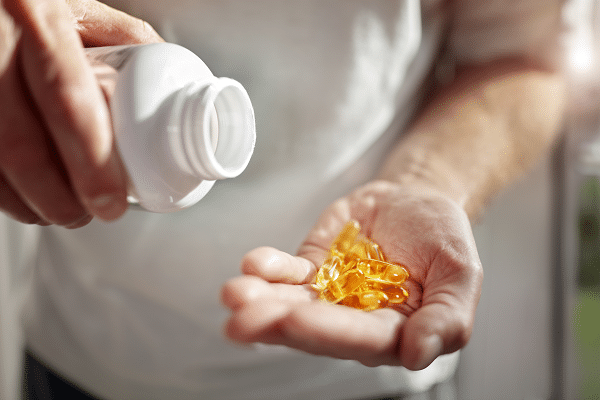
Fish oil, a rich source of Omega-3 fatty acids, has long been recognized for its benefits to skin health. Omega-3s, particularly EPA (eicosapentaenoic acid) and DHA (docosahexaenoic acid), are crucial in maintaining skin hydration and reducing inflammation. They help maintain the skin’s lipid barrier, a protective layer that keeps harmful substances out and locks moisture in. This, in turn, aids in combating dryness and maintaining a youthful, hydrated appearance.
Further, Omega-3s demonstrate potent anti-inflammatory properties that can benefit various skin conditions. For instance, they may alleviate symptoms of psoriasis and eczema, which are characterized by inflammation and dryness. Additionally, evidence suggests that fish oil can help reduce acne severity by controlling inflammation and reducing the production of sebum, an oily substance that can clog pores and contribute to breakouts. When selecting a fish oil supplement, it’s advisable to opt for one that is high in EPA and DHA and has been certified for purity.
Probiotics
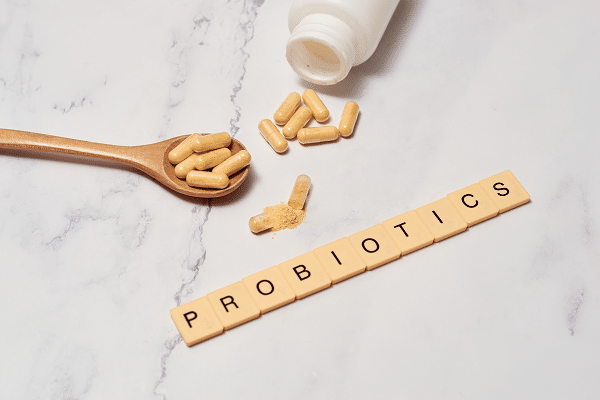
Probiotics, beneficial bacteria that inhabit the gut, have recently gained attention for their potential benefits to skin health. These microbes play a crucial role in overall health, including regulating the immune system, which can have direct effects on the condition of the skin. A balanced gut microbiome can thus contribute to clearer, healthier skin.
Specific strains of probiotics have been associated with skin benefits. For instance, Lactobacillus rhamnosus GG has been linked to a reduction in eczema severity in children, while Lactobacillus paracasei has demonstrated potential in improving skin hydration. These findings highlight the possibility of probiotics serving as a novel approach to managing various skin conditions and improving skin health overall. As probiotic supplements can vary greatly in terms of bacterial strains and colony-forming units (CFUs), it’s advisable to choose one that has been tested for quality and efficacy.
Vitamin C
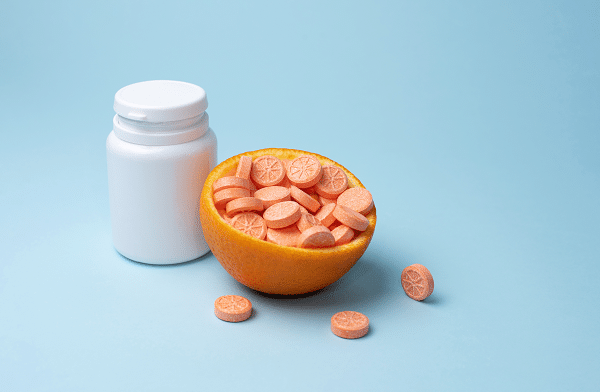
This potent antioxidant plays an indispensable role in skin health, not least due to its involvement in collagen synthesis. Collagen, the main structural protein in the skin, is responsible for its elasticity and resilience. As the body ages, collagen production decreases, leading to wrinkles and sagging skin. Vitamin C supports collagen synthesis, thereby potentially slowing down signs of aging.
In addition to its collagen-boosting properties, vitamin C helps protect the skin against oxidative damage from free radicals and environmental stressors, such as UV radiation and air pollution. It neutralizes harmful free radicals, preventing them from damaging skin cells. This antioxidant protection, combined with its role in collagen production, makes vitamin C an invaluable supplement for promoting youthful, radiant skin. When choosing a vitamin C supplement, it’s important to look for one that is readily absorbable and comes in a stable form, such as ascorbic acid or sodium ascorbate.
Biotin

Biotin, also known as vitamin B7, is often hailed as the beauty vitamin for its role in maintaining healthy hair, skin, and nails. It assists in the metabolism of proteins, fats, and carbohydrates, all of which are necessary for maintaining skin health. A deficiency in biotin can lead to skin problems such as dryness, rashes, and acne.
While serious biotin deficiency is rare, some individuals may benefit from supplementation, particularly those experiencing chronic skin conditions or brittle nails. Although biotin is safe and non-toxic, it’s important to note that excessively high levels of biotin can interfere with certain lab tests, including thyroid and hormone tests. Therefore, it’s recommended to discuss biotin supplementation with a healthcare provider.
Zinc

Zinc is a trace mineral with potent anti-inflammatory and immune-boosting properties, making it an essential supplement for skin health. It’s particularly beneficial for those dealing with inflammatory skin conditions like acne. Zinc helps control the production of oil in the skin, preventing clogged pores, which are a primary cause of breakouts.
Not only does zinc help in acne management, but it also plays a critical role in wound healing and the regeneration of skin cells. It supports protein synthesis and cell division, processes that are essential for the repair and renewal of skin. Those considering a zinc supplement should be aware that while it’s beneficial in moderate doses, too much zinc can cause adverse side effects such as nausea and lowered immune function. It’s therefore crucial to adhere to recommended dosages.
Collagen
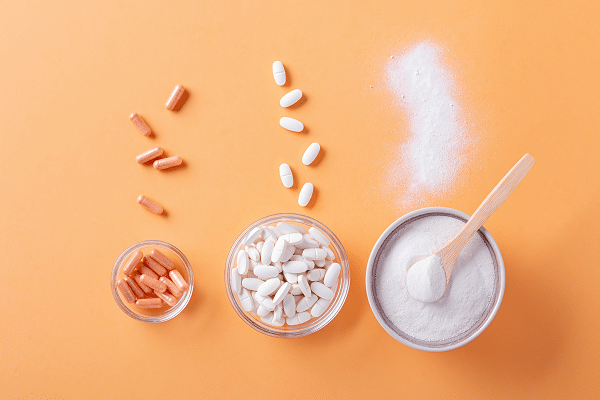
Collagen is the most abundant protein in the human body, providing structure and resilience to the skin. As individuals age, collagen production naturally declines, leading to signs of aging such as wrinkles and sagging skin. Supplementing with collagen can help support the skin’s structural integrity and maintain its youthful appearance.
Several studies suggest that collagen supplements can improve skin elasticity, hydration, and density. They come in various forms, including powders and capsules, and are often derived from bovine or marine sources. When choosing a collagen supplement, one should consider factors such as the source of collagen, the type of collagen (I, II, or III), and any added ingredients.
Vitamin E
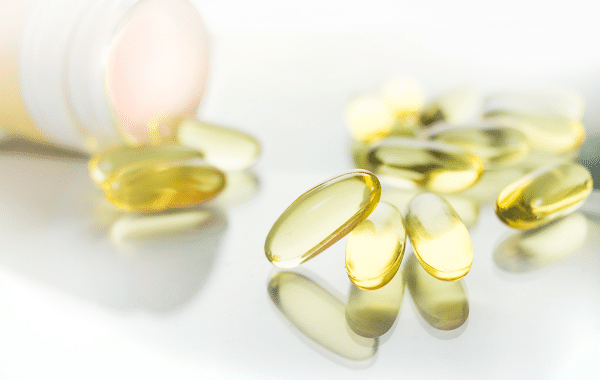
Like vitamin C, vitamin E is a powerful antioxidant that protects skin cells from oxidative stress. It neutralizes harmful free radicals that can damage skin cells, preventing signs of premature aging. Furthermore, vitamin E helps to maintain the skin’s natural barrier function, preserving its moisture and protecting it from environmental damage.
Aside from its antioxidant capabilities, vitamin E plays a significant role in wound healing. It supports the skin’s natural healing process, which can help minimize the appearance of scars. Moreover, some studies suggest that when applied topically, vitamin E may even provide some degree of sun protection, although it should not replace a broad-spectrum sunscreen. Vitamin E supplements are readily available, but it’s worth noting that they should be taken with food for optimal absorption, particularly foods containing healthy fats.
Conclusion
In conclusion, numerous dietary supplements can significantly contribute to skin health, from hydrating and healing to protecting against environmental damage. Fish oil, probiotics, vitamins C and E, zinc, biotin, and collagen all have unique benefits that can help maintain a radiant and youthful complexion. However, it’s essential to remember that while these supplements can offer a helping hand, they are not a replacement for a balanced diet, adequate hydration, and a good skincare regimen. Always consult with a healthcare provider before starting any new supplement, as they can provide personalized advice based on individual health needs and lifestyle factors.


